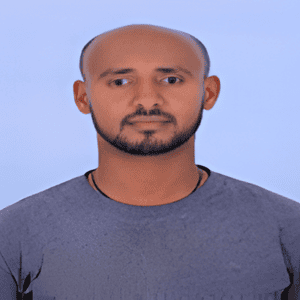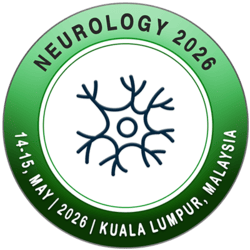
Gashaw Sisay Chanie
University of Gondar, EthiopiaPresentation Title:
Patients reported neuropsychiatric adverse effects among adults living with HIV receiving DTG-based regimen Antiretroviral Therapy in Ethiopia: In real-life clinical practice
Abstract
Background: Neuropsychiatric adverse effects from dolutegravir containing regimens frequently result in nonadherence, switching, and discontinuation of antiretroviral therapy for HIV patients. This study aimed to assess the prevalence of neuropsychiatric adverse effects and the associated factors among adult patients initiating DTG-based regimens at the Comprehensive and Specialized Hospital (CSH) in Northwest Ethiopia.
Method: A multicenter cross-sectional study was conducted from December 1, 2022, to August 30, 2023, involving 620 HIV patients slated to begin a DTG-based regimen. A structured questionnaire were used for data collection and it included sociodemographic details, clinical characteristics, and neuropsychiatric adverse effects were gathered from medical records and patient interviews. Binary logistic regression analysis was undertaken for association determination, with multivariate analysis performed for significant tests. Statistical significance was declared at a P-value of ≤ 0.05.
Results: A total of 620 participants were involved in the analysis, revealing a 28.3% prevalence of experienced NPAEs (ranging 21.54% to 35.62%). The most frequently reported NPAEs were low mood/depression, insomnia/sleeplessness, and aggressive mood/behavior. Factors such as being female [AOR=1.72], age between 47-54 years [AOR=3.8] and 55-75 years [AOR=1.27], unemployment status [AOR=1.35], level of physical activity with none[AOR=3.6], and minimal [AOR=2.4] duration since DTG-based regimen initiation, 6-12 months[AOR=3.35]and 13.24 months [AOR=2.67], WHO clinical stage II [AOR=3.65], III and IV [AOR=4.21], finally detectable viral load level at the start therapy [AOR=1.24 (1.97.6–2.05)] were showed significant associations with the experiences of NP-AEs.
Conclusion: Adult patients living with HIV and on a DTG-based regimen commonly encountered NP-AEs. Health-care providers should be attentive to patients receiving DTG -based therapy, particularly those who are females, age>47years, unemployed status, have limited and minimal physical activity, a follow-up period of less than 24 months, an advanced disease stage (II-IV), and a detectable viral load at the start of therapy. Monitoring for NPAEs in these patient groups is crucial.
Biography
Gashaw Sisay Chanie completed his MSc at the age of 30 from the University of Gondar, Ethiopia. He currently serves as a lecturer and the Head of the Department of Clinical Pharmacy at the University of Gondar. With a strong commitment to advancing clinical pharmacy practice and research, Gashaw has authored over 30 scientific publications, which have collectively been cited more than 4,687 times. His research impact is further reflected in his h-index of 11. In addition to his academic and research roles, he actively contributes to the scientific community as a reviewer board member for reputable journals, including BMC and Scientific Reports. Gashaw’s work focuses on improving patient care through evidence-based practice, and he is dedicated to mentoring the next generation of pharmacy professionals. His leadership and scholarly contributions have made him a respected figure in the field of clinical pharmacy in Ethiopia and beyond.


